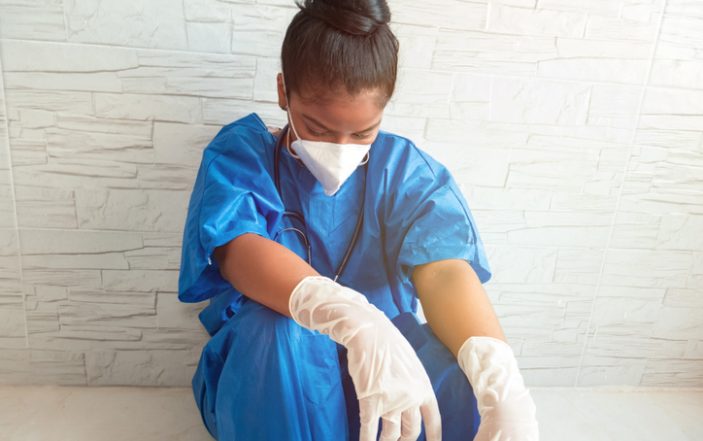Avoiding the stress inducing pitfalls that can lead to a wipe out.
This is a story of my transformation
| Transformation From | Transformation To |
| A proud & exuberant EM PGY 1 | A disgraceful PGY2 who saw no esteem in EM
|
| A cheerful, kind team player | A grumpy bully insulting doctors and nurses
|
| A pleasant doctor helping patients | An angry man lacking empathy for dying patients
|
| Social extra-curricular enthusiast | An isolated Anhedonic
|
| Encouraging interns to take up EM
|
Dissuading interested interns – ‘EM is a hellhole’ |
I was over worked, working even after my shift was over. Not because my seniors demanded it, but because I was obsessed with my work. I came well before time and left well after. Soon, I expected everyone to do the same.
It felt like I was the only one working while the rest of the hospital was relaxing. There was no time to eat or drink on my shift as I though there were still some patients to be seen in the ED, and the world will come to an end if I took a five-minute break. I stopped others from taking breaks.
Eventually, I realized I was fighting too many wars — most of which were meant for an administrator instead of a resident doctor. I lost the ability to comprehend my failures, despite my kind seniors’ advice.
For the little time I spent out of work — I indulged in unhealthy “de-stressing” activities:
| “ De-stressing” strategy | My rationale |
| Four-hour sitcom sagas with junk food | I should relax in a fantasy world, away from EM
|
| Lack of any physical exercise
|
I was too ‘physically exhausted’ for it |
| No meditation/yoga | No time for such a boringly slow activity
|
| Inadequate sleep < six hours | I don’t feel sleepy and heroes don’t need much sleep, do they?
|
| Not talking about my issues at home
|
They just won’t understand |
| Binge Drinking | When you can’t fight it, forget it…temporarily
|
Finally, I sought help from a psychologist. I practiced and preached burnout and wellbeing strategies during the subsequent years. Here are some of them:
- Sleep hygiene for daytime sleeping: Dimming the light in the room, a warm water bath, a glass of milk, almonds and walnuts and no gadgets in the bedroom! It really works.
- Diet on night shifts: A hearty calorie rich ‘breakfast’ at 8 p.m. just before the shift to keep yourself energized. A high protein compulsory ‘lunch’ break at 2 a.m. This prevents from overeating at the end of the night shift while also helping to stay awake and content for the second half of the night shift.
- Adequate hydration: I coupled two activities — a big sip of water and picking up a new patient’s case sheet. Initially this was done deliberately, and gradually it became a reflex (like Pavlov’s!) and I ended up drinking more than a liter of water on every shift.
- Coping at the end of a bad day at work: Replacing ‘serial Netflix watching’ with ‘serial guitar strumming.’ In the bargain, I not only felt calmer, but honed my music skills!
- Preparation for a shift: Before every shift, I did three minutes of yoga and three minutes of meditation. This has become a ‘ritual’ for me now.
- Research and seminars/workshops on emotional wellbeing: This helps me keep myself updated and accountable to practice what I preach.
I feel like I have been given a second life. The ED, my colleagues and my patients, all look different now that I am more aware of myself and paying more attention to emotional well-being at work and home!
This is now a story of my survival: of hope and a purpose — to help other residents before they need to make a transformation of their own. As they say wise people learn from their own mistakes and wiser people learn from others mistakes.



